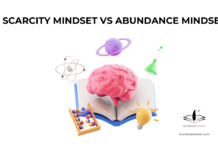There are some books that stay with you long after you’ve turned the last page. To Kill a Mockingbird by Harper Lee is one of those books. Published in 1960, this Pulitzer Prize-winning novel has become a cornerstone of American literature, touching the hearts of millions with its powerful themes of justice, morality, and empathy. But what makes this classic so timeless? Why does it continue to resonate with readers more than six decades later?
In this post, we’ll explore why To Kill a Mockingbird is still relevant today, from its unforgettable characters to its enduring themes. Whether you’re reading it for the first time or revisiting it, this novel is a must-read for anyone who values stories that challenge, inspire, and move you.
What is To Kill a Mockingbird?
To Kill a Mockingbird is set in the fictional town of Maycomb, Alabama, during the Great Depression. The story is narrated by Scout Finch, a young girl who, along with her brother Jem and their father Atticus, navigates the complexities of life in the racially divided South.
At its heart, the novel is about Atticus Finch, a lawyer who defends a Black man, Tom Robinson, falsely accused of raping a white woman. Through Scout’s eyes, we witness the trial, the prejudice of the town, and the moral courage it takes to stand up for what’s right.
But To Kill a Mockingbird is more than just a courtroom drama. It’s a coming-of-age story, a tale of empathy, and a powerful exploration of human nature. Harper Lee’s writing is both poignant and thought-provoking, making it a novel that stays with you long after you’ve finished it.
Why To Kill a Mockingbird still stands out
1. Timeless Themes
The themes of To Kill a Mockingbird—justice, racism, and morality—are as relevant today as they were in 1960. The novel forces readers to confront uncomfortable truths about prejudice and inequality, while also offering hope through acts of courage and kindness.
2. Memorable Characters
From Atticus Finch, the moral backbone of the story, to Scout, the curious and spirited narrator, the characters in To Kill a Mockingbird are unforgettable. Even Boo Radley, the reclusive neighbor, becomes a symbol of misunderstood humanity.
3. Scout’s Narrative Voice
Scout’s voice is one of the most distinctive aspects of the novel. Her innocence, curiosity, and growing understanding of the world around her make her a relatable and compelling narrator.
4. Social Commentary
Harper Lee doesn’t shy away from addressing the harsh realities of racism and injustice. The trial of Tom Robinson is a stark reminder of the systemic inequalities that still exist today.
5. Literary Impact
To Kill a Mockingbird has had a profound impact on literature and popular culture. It’s been translated into over 40 languages, adapted into an Academy Award-winning film, and remains a staple in school curriculums worldwide.
Themes in To Kill a Mockingbird
Racial Injustice
The trial of Tom Robinson is a central focus of the novel, highlighting the deep-seated racism in Maycomb and the broader South. It’s a heartbreaking reminder of the injustices faced by Black Americans, both in the past and present.
Moral Growth
Scout and Jem’s journey is one of moral growth. Through their father’s guidance and their own experiences, they learn about empathy, courage, and the importance of standing up for what’s right.
Empathy and Understanding
Atticus’s famous advice to Scout—“You never really understand a person until you consider things from his point of view”—is a central theme of the novel. It’s a lesson in empathy that resonates deeply with readers.
Innocence and Experience
The novel explores the loss of innocence as Scout and Jem confront the harsh realities of the world. It’s a poignant reminder of the complexities of growing up.
Analysis, adaptations, and Go Set a Watchman
Literary Analysis
To Kill a Mockingbird is widely studied for its themes, narrative style, and historical context. It’s a novel that sparks important conversations about race, justice, and morality, making it a valuable text for classrooms and book clubs.
Adaptations
The 1962 film adaptation, starring Gregory Peck as Atticus Finch, is a classic in its own right. Peck’s portrayal of Atticus earned him an Academy Award, and the film remains a powerful companion to the novel.
Go Set a Watchman
Published in 2015, Go Set a Watchman was originally written before To Kill a Mockingbird but set later in Scout’s life. The novel offers a different perspective on Atticus, revealing a more flawed and complex character. While it sparked controversy, it also deepened readers’ understanding of Harper Lee’s work.
Why You Should Read To Kill a Mockingbird
If you’re looking for a novel that will challenge and inspire you, To Kill a Mockingbird is the perfect choice. It’s a story that stays with you, offering timeless lessons about justice, empathy, and the power of standing up for what’s right. Whether you’re reading it for the first time or revisiting it, this classic is a must-read.
Frequently Asked Questions
What is To Kill a Mockingbird about?
It’s a story about racial injustice, moral growth, and empathy, told through the eyes of Scout Finch, a young girl in the American South during the 1930s.
What inspired Harper Lee to write To Kill a Mockingbird?
Harper Lee drew inspiration from her own childhood in Alabama and her father, who was a lawyer like Atticus Finch. The Scottsboro Boys case, a real-life trial of Black men falsely accused of rape, also influenced the story.
How did people respond to To Kill a Mockingbird?
The novel was an instant success, winning the Pulitzer Prize and becoming a bestseller. It has been praised for its moral clarity and emotional depth but has also faced criticism and bans for its themes and language.
Why is To Kill a Mockingbird a significant text?
It’s a powerful exploration of racism, justice, and empathy that continues to spark important conversations about equality and morality.
Is there a sequel to To Kill a Mockingbird?
Go Set a Watchman, published in 2015, is technically a sequel but was written before To Kill a Mockingbird. It offers a different perspective on Atticus and Scout’s relationship.
Conclusion
To Kill a Mockingbird is more than just a novel—it’s a timeless exploration of justice, empathy, and the human condition. Its themes and characters continue to resonate with readers, making it a must-read for anyone who values stories that challenge and inspire.
So, have you read To Kill a Mockingbird? Let us know your thoughts in the comments below! And if you’re looking for a novel that will stay with you long after you’ve finished it, grab a copy today.
Happy reading! 📚❤️
For more novel reviews visit my website Hundred vision!



















